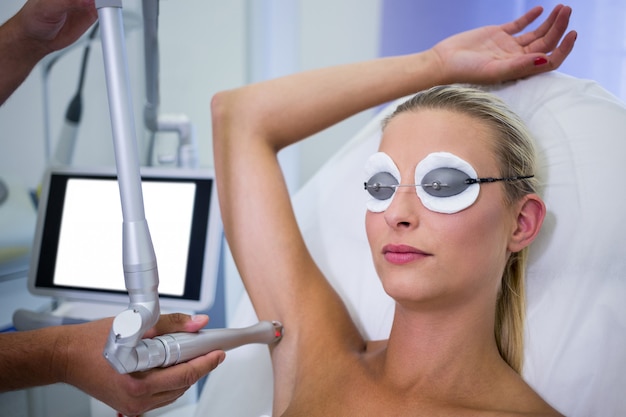Introduction
Thinking about getting laser hair removal after surgery? It’s a smart move if you’re looking for smooth, hair-free skin without the hassle of constant shaving or waxing. But here’s the catch—you can’t just jump into it right after surgery. Your skin needs some TLC to heal properly. Rushing into laser treatments too soon can lead to irritation, slow down healing, or even cause scarring.
This guide will walk you through the best time to start laser hair removal after surgery and share practical safety tips to protect your skin. If you’re in Islamabad and looking for expert care, Laser Hair Removal in Islamabad offered by Dr. Taskeen Iqbal ensures safe and effective treatments to help you achieve smooth skin.
Understanding Laser Hair Removal
Let’s break it down. Laser hair removal uses focused light to target hair follicles. This light damages the follicle enough to slow or stop future hair growth. Over several sessions, you’ll notice that your hair grows back thinner and lighter until it stops altogether.
Why is everyone raving about it?
- Long-term results: Say goodbye to shaving and waxing.
- Precision: The laser zaps only the hair, leaving your skin untouched.
- Quick and easy: Sessions are short and relatively painless.
- Smoother skin: Over time, your skin feels softer with finer hair.
Sounds great, right? But here’s the thing—your skin needs to be fully healed before you start.
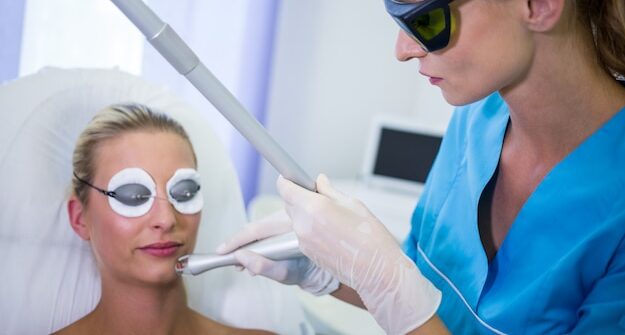
Why Timing Matters After Surgery
After surgery, your body is in full-on healing mode. Your skin is delicate, and if you start laser treatments too soon, you could end up with irritated skin or, worse, permanent scars.
What could go wrong if you rush it?
- Delayed healing: Your skin might take longer to recover.
- Irritation: Expect redness, swelling, or even blistering. Ouch.
- Scarring: New scars can darken or thicken if treated too soon.
- Infections: Healing skin is more vulnerable to bacteria.
Getting back to your routine quickly is tempting, but your skin will thank you for being patient.
Factors to Consider Before Starting Laser Hair Removal After Surgery
Before you book that appointment, let’s discuss what you must consider. Not all surgeries or skin types are the same, so your healing time might differ from someone else’s.
Type of Surgery
The kind of surgery you had makes a big difference.
- Minor surgeries (like mole removal) might heal in a few weeks.
- Major surgeries (like a tummy tuck or facelift) need months to heal fully.
The more invasive the surgery, the longer you should wait.
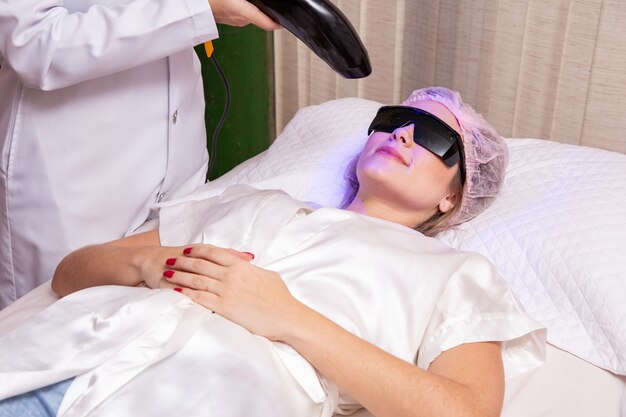
Skin Sensitivity
After surgery, your skin can stay sensitive for quite some time. If the area feels tender, itchy, or looks red, it’s too early for laser treatments. Please wait until it feels like normal skin again.
Scar Maturity
Fresh scars are like newborns—they need gentle care. They’re fragile and can easily darken or thicken if exposed to laser. It’s better to wait until scars soften and lighten before you start.
Medical Clearance
Here’s a non-negotiable: always check with your doctor or surgeon first. They’ll let you know when starting laser hair removal is safe. Don’t skip this step!
Best Time to Start Laser Hair Removal Post-Surgery
Now for the big question: When can you safely start? The answer isn’t one-size-fits-all, but here’s a general idea.
General Healing Timelines
- Minor surgeries: Wait at least 4–6 weeks.
- Major surgeries: Give it 3–6 months.
- Cosmetic surgeries: Procedures like liposuction or facelifts? You’re looking at around 6 months.
But remember, this is just a guide. Your body might need more or less time. Trust your doctor’s advice.
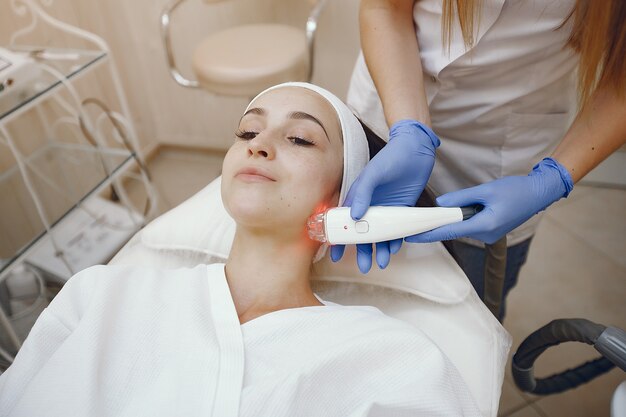
Signs Your Skin Is Ready
Is your skin ready? Look for these signs:
- No open wounds or scabs.
- Scars are lighter and flatter.
- No redness, swelling, or tenderness.
- You’ve gotten the green light from your doctor.
If you check all these boxes, you’re good to go.
Consult a Professional
Even if your skin feels fine, a professional can give you the best advice. Dr. Taskeen Iqbal in Islamabad offers personalized laser hair removal treatments, ensuring your skin is treated safely and effectively.
Safety Tips for Laser Hair Removal After Surgery
You’ve waited long enough, and your doctor says it’s safe. Great! But how do you make sure the process goes smoothly? Here are some tips.
Before the Treatment
- Doctor’s Approval: Seriously, don’t skip this.
- Avoid Sun Exposure: Sunburned skin and lasers don’t mix.
- Stop Using Harsh Products: Pause on retinoids and exfoliants a week before treatment.
- Hydrate Your Skin: Moisturized skin handles lasers better.
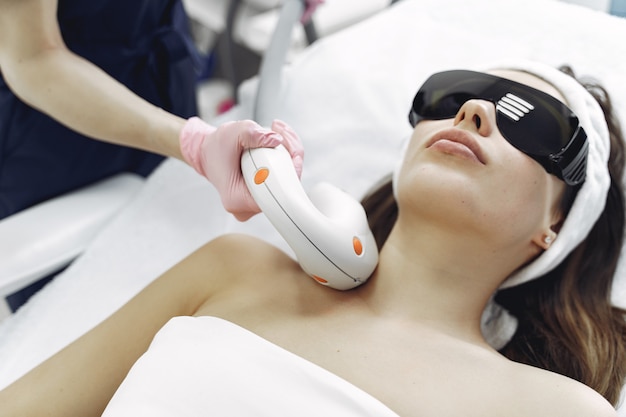
During the Treatment
- Pick an Experienced Provider: You want someone who handles sensitive skin.
- Do a Patch Test: This checks how your skin reacts to the laser.
- Adjust Settings for Sensitive Skin: Your provider should use lower settings if needed.
After the Treatment
- Avoid Heat: No hot showers, saunas, or workouts for 48 hours.
- Moisturize: Use gentle, fragrance-free lotion.
- Stay Away from Harsh Products: No scrubs or peels for a few days.
- Watch for Reactions: If anything feels off, call your provider.
Following these tips helps your skin stay calm and heal properly after each session.
Benefits of Professional Laser Hair Removal
Let’s be honest—at-home devices are tempting, but professional treatments are safer and more effective. Especially after surgery, you want to be in expert hands.
Why go professional?
- Customized Care: Treatments are tailored to your skin type.
- Better Equipment: Clinics use advanced machines for safer results.
- Expertise: Professionals know how to handle sensitive, healing skin.
- Longer-Lasting Results: Clinic treatments work better.
At Dr. Taskeen Iqbal’s clinic in Islamabad, you’ll get top-notch care with the latest technology for smooth, hair-free skin.

Conclusion
Laser hair removal is a fantastic option for long-term hair reduction, but timing is everything after surgery. Jumping into treatment too soon can cause irritation, slow healing, or even scarring. The best approach? Be patient and let your skin heal fully.
Look for signs that your skin is ready—no open wounds, faded scars, and doctor approval. Once you’re cleared, follow safety tips to protect your skin and get the best results. For those considering laser hair removal for more targeted areas, Best Laser Hair Removal for Men’s Back: Top Solutions in 2025 offers effective treatments to achieve smooth, hair-free skin.
When ready to start, trust Dr Taskeen Iqbal for safe and effective Laser Hair Removal in Islamabad. Book your consultation today and take the first step toward smooth, beautiful skin!
FAQs
How long after surgery can you do laser hair removal?
It’s generally recommended to wait at least 4–6 weeks after minor surgery and 3–6 months after major surgery before getting laser hair removal. Your skin needs time to heal properly. Dr. Taskeen Iqbal will assess your skin and guide you on the best time to start your treatments.
Can you get a laser after surgery?
Yes, you can get laser hair removal after surgery, but only once your skin has fully healed and your doctor clears you. It’s important to wait until swelling, redness, or scarring has subsided. Dr. Taskeen Iqbal ensures you’re fully ready for treatment to avoid any risks.
When should you not get laser hair removal?
You should avoid laser hair removal if your skin is still healing, if there are open wounds, or if you have active scars. Always wait until your skin is back to normal. Dr. Taskeen Iqbal will help determine if your skin is ready for laser hair removal.
Does anaesthesia affect laser hair removal?
Anesthesia itself doesn’t affect laser hair removal. However, it may be too sensitive if your skin is still healing from surgery. Laser treatments should only be done after full recovery. Dr. Taskeen Iqbal can evaluate your skin’s readiness and guide you on the safest approach.
Who cannot do laser hair removal?
People with certain skin conditions, active infections, or pregnant women may not be eligible for laser hair removal. It’s best to consult with a professional before undergoing treatment. Dr. Taskeen Iqbal can assess your medical history to determine if laser hair removal suits you.

